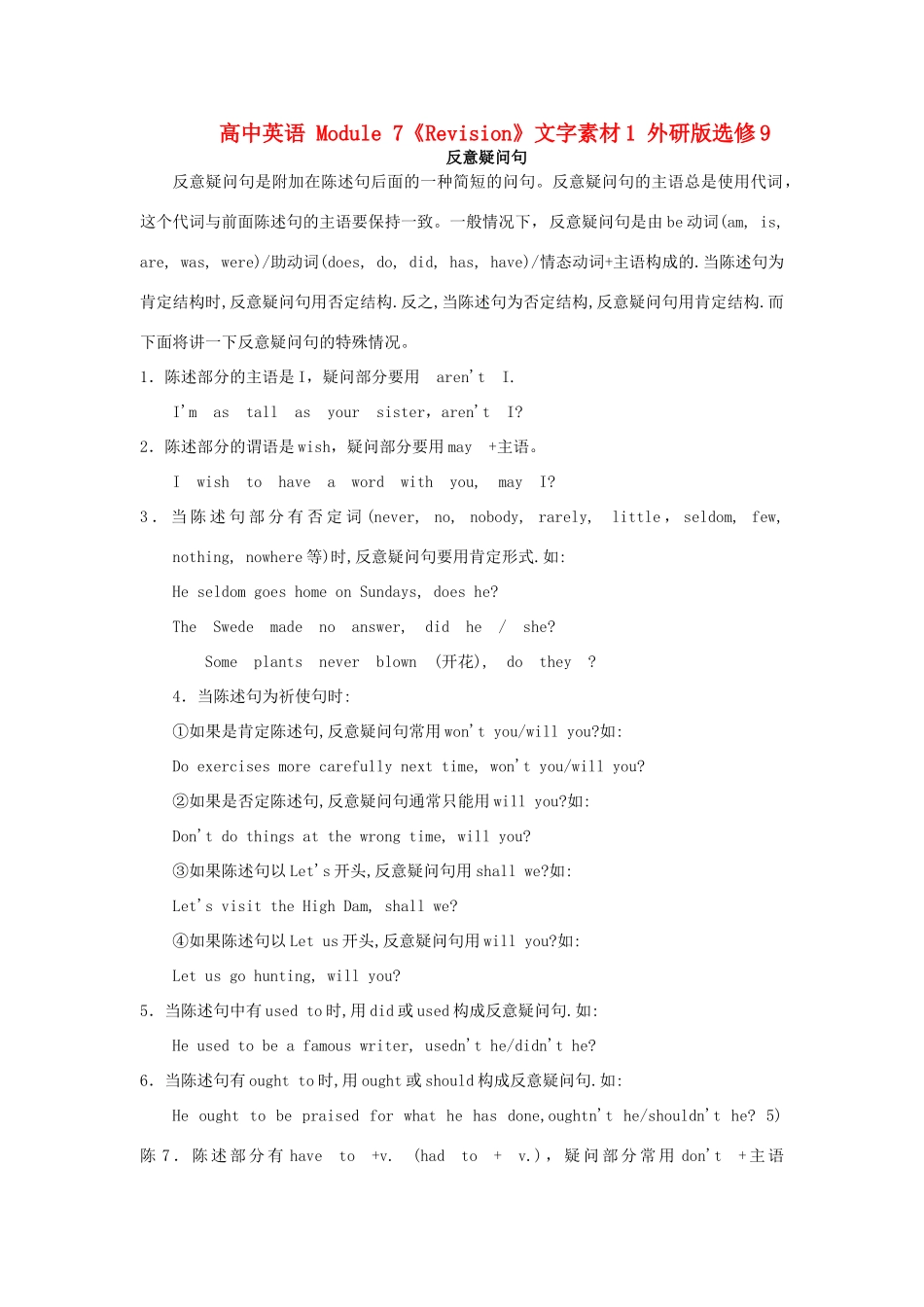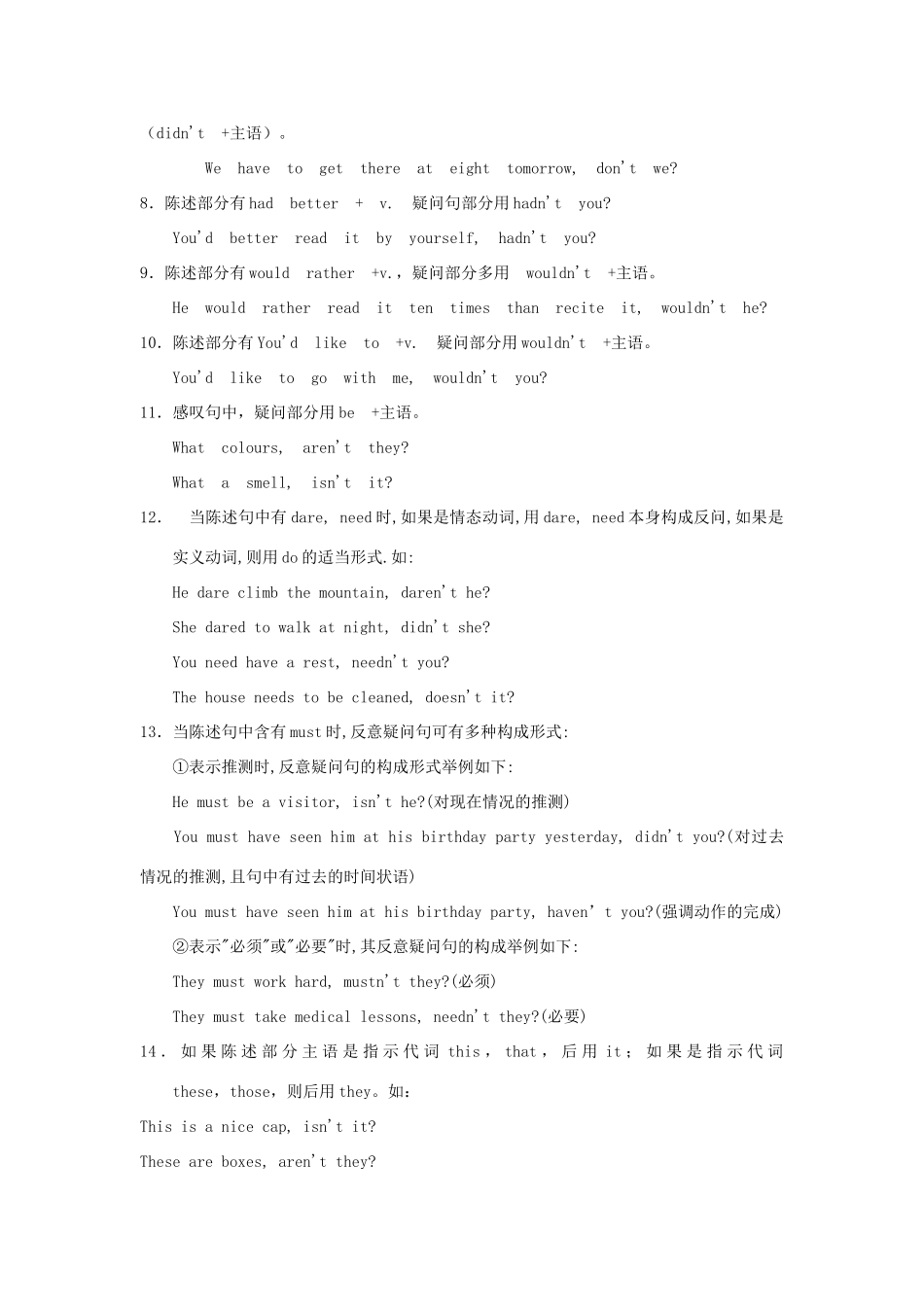高中英语 Module 7《Revision》文字素材 1 外研版选修 9反意疑问句反意疑问句是附加在陈述句后面的一种简短的问句。反意疑问句的主语总是使用代词,这个代词与前面陈述句的主语要保持一致。一般情况下,反意疑问句是由 be 动词(am, is, are, was, were)/助动词(does, do, did, has, have)/情态动词+主语构成的.当陈述句为肯定结构时,反意疑问句用否定结构.反之,当陈述句为否定结构,反意疑问句用肯定结构.而下面将讲一下反意疑问句的特殊情况。1.陈述部分的主语是 I,疑问部分要用 aren't I.I'm as tall as your sister,aren't I?2.陈述部分的谓语是 wish,疑问部分要用 may +主语。I wish to have a word with you, may I?3 . 当 陈 述 句 部 分 有 否 定 词 (never, no, nobody, rarely, little , seldom, few, nothing, nowhere 等)时,反意疑问句要用肯定形式.如: He seldom goes home on Sundays, does he?The Swede made no answer, did he / she? Some plants never blown (开花), do they ?4.当陈述句为祈使句时: ①如果是肯定陈述句,反意疑问句常用 won't you/will you?如: Do exercises more carefully next time, won't you/will you? ②如果是否定陈述句,反意疑问句通常只能用 will you?如: Don't do things at the wrong time, will you? ③如果陈述句以 Let's 开头,反意疑问句用 shall we?如: Let's visit the High Dam, shall we? ④如果陈述句以 Let us 开头,反意疑问句用 will you?如: Let us go hunting, will you?5.当陈述句中有 used to 时,用 did 或 used 构成反意疑问句.如: He used to be a famous writer, usedn't he/didn't he?6.当陈述句有 ought to 时,用 ought 或 should 构成反意疑问句.如: He ought to be praised for what he has done,oughtn't he/shouldn't he? 5) 陈 7 . 陈 述 部 分 有 have to +v. (had to + v.) , 疑 问 部 分 常 用 don't + 主 语(didn't +主语)。 We have to get there at eight tomorrow, don't we?8.陈述部分有 had better + v. 疑问句部分用 hadn't you? You'd better read it by yourself, hadn't you?9.陈述部分有 would rather +v...


